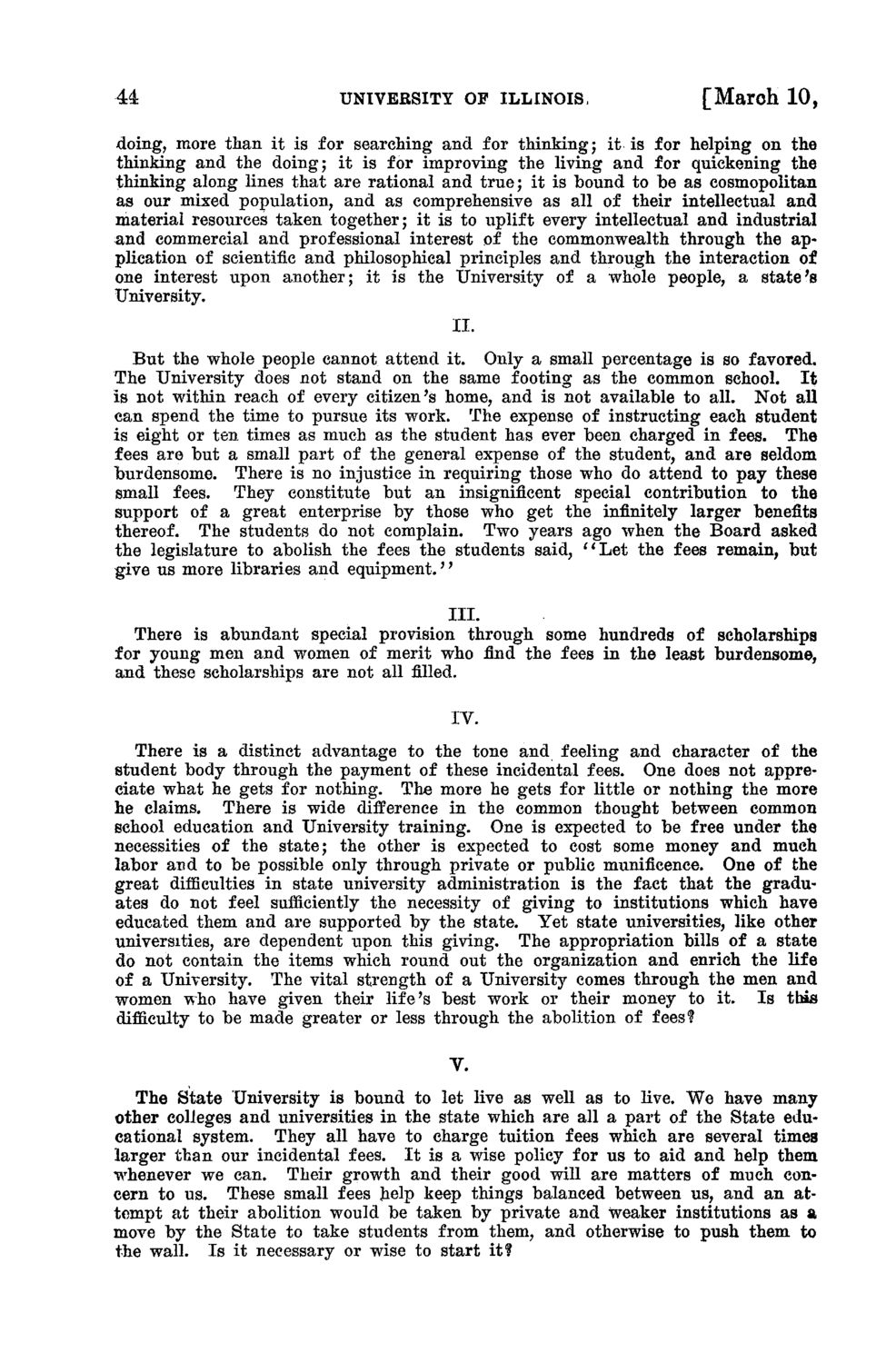| |
| |
Caption: Board of Trustees Minutes - 1904
This is a reduced-resolution page image for fast online browsing.

EXTRACTED TEXT FROM PAGE:
44 UNIVERSITY OF ILLINOIS, [March 10, doing, more than it is for searching and for thinking; it is for helping on the thinking and the doing; it is for improving the living and for quickening the thinking along lines that are rational and t r u e ; it is bound to be as cosmopolitan as our mixed population, and as comprehensive as all of their intellectual and material resources taken together; it is to uplift every intellectual and industrial and commercial and professional interest of the commonwealth through the application of scientific and philosophical principles and through the interaction of one interest upon another; it is the University of a whole people, a state's University. II. B u t the whole people cannot attend it. Only a small percentage is so favored. The University does not stand on the same footing as the common school. I t is not within reach of every citizen's home, and is not available to all. Not all can spend the time to pursue its work. The expense of instructing each student is eight or ten times as much as the student has ever been charged in fees. The fees are but a small p a r t of the general expense of the student, and are seldom burdensome. There is no injustice in requiring those who do attend to pay these small fees. They constitute but an insignificent special contribution to the support of a great enterprise by those who get the infinitely larger benefits thereof. The students do not complain. Two years ago when the Board asked the legislature to abolish the fees the students said, " L e t the fees remain, but give us more libraries and equipment.'' III. There is abundant special provision through some hundreds of scholarships for young men and women of merit who find the fees in the least burdensome, and these scholarships are not all filled. IV. There is a distinct advantage to the tone and feeling and character of the student body through the payment of these incidental fees. One does not appreciate what he gets for nothing. The more he gets for little or nothing the more he claims. There is wide difference in the common thought between common school education and University training. One is expected to be free under the necessities of the state; the other is expected to cost some money and much labor and to be possible only through private or public munificence. One of the great difficulties in state university administration is the fact that the graduates do not feel sufficiently the necessity of giving to institutions which have educated them and are supported by the state. Yet state universities, like other universities, are dependent upon this giving. The appropriation bills of a state do not contain the items which round out the organization and enrich the life of a University. The vital strength of a University comes through the men and women who have given their life's best work or their money to it. I s this difficulty to be made greater or less through the abolition of fees? V. The State University is bound to let live as well as to live. We have many other colleges and universities in the state which are all a p a r t of the State educational system. They all have to charge tuition fees which are several times larger than our incidental fees. I t is a wise policy for us to aid and help them whenever we can. Their growth and their good will are matters of much concern to us. These small fees help keep things balanced between us, and an attempt a t their abolition would be taken by private and weaker institutions as a move by the State to take students from them, and otherwise to push them to the wall. I s it necessary or wise to start it?
| |